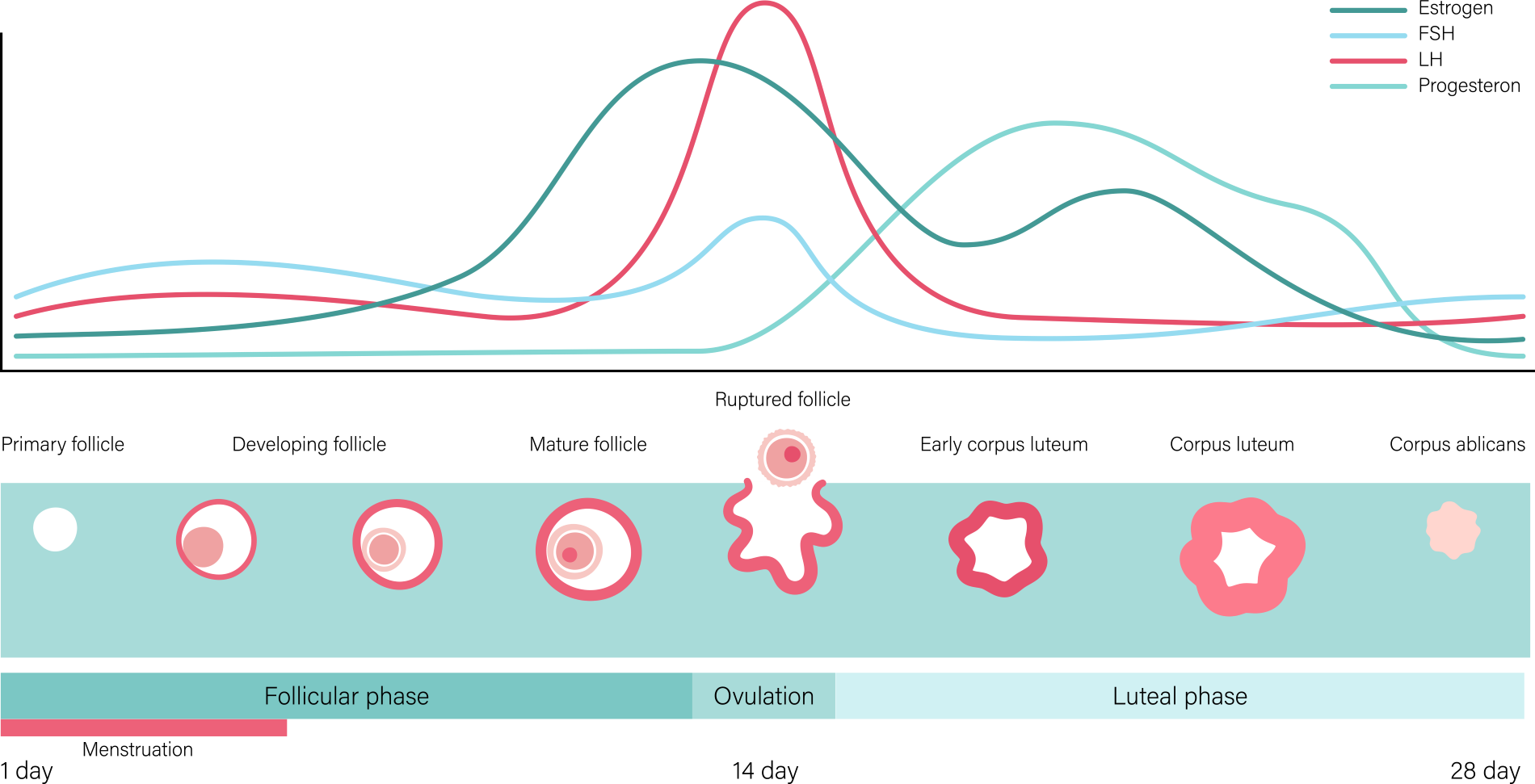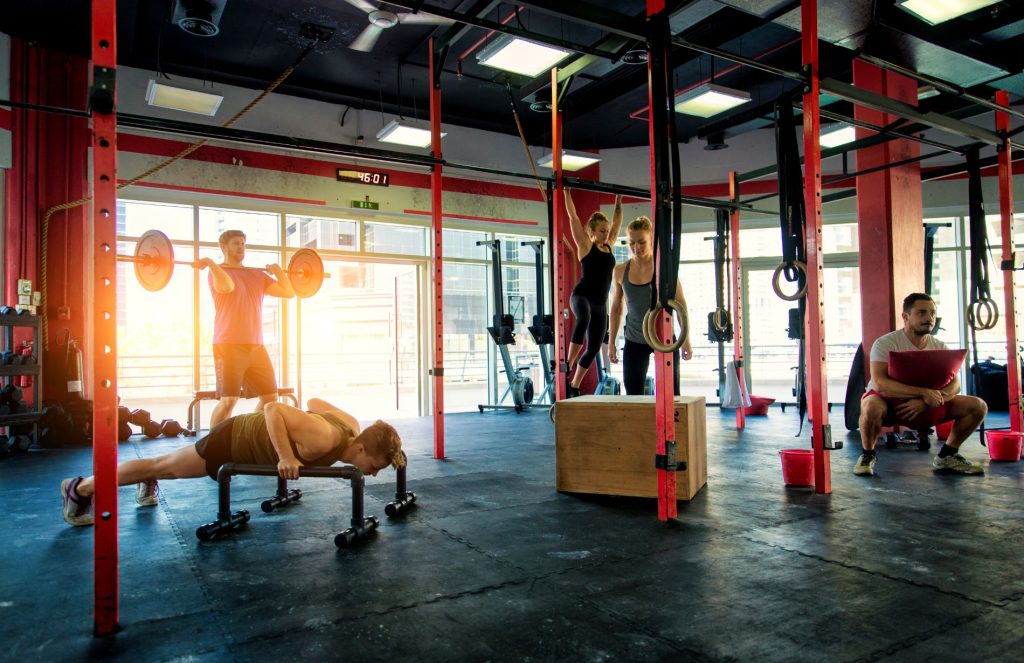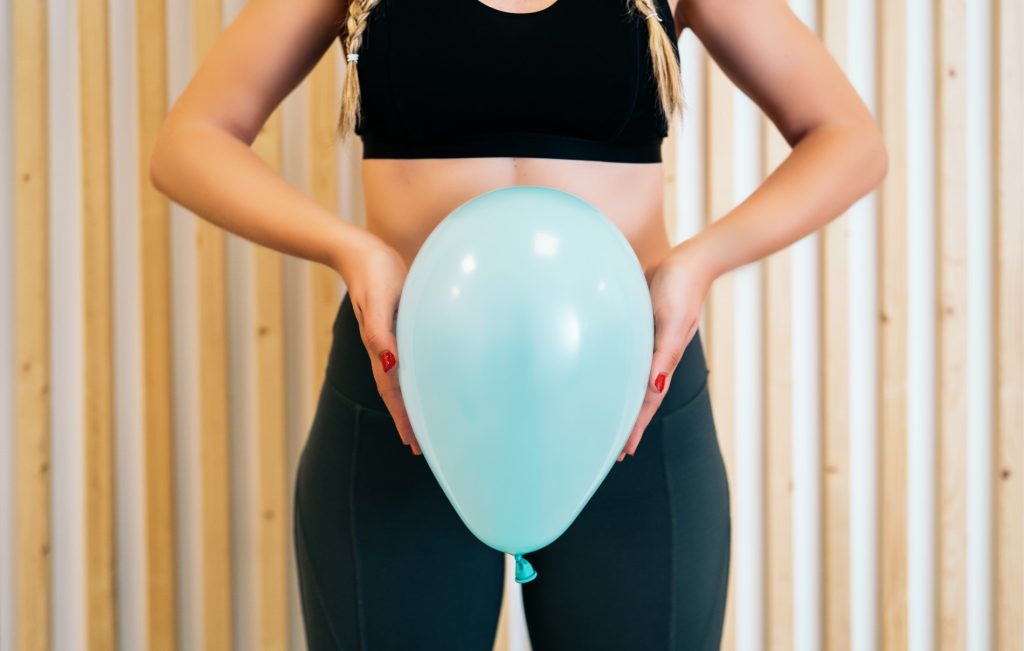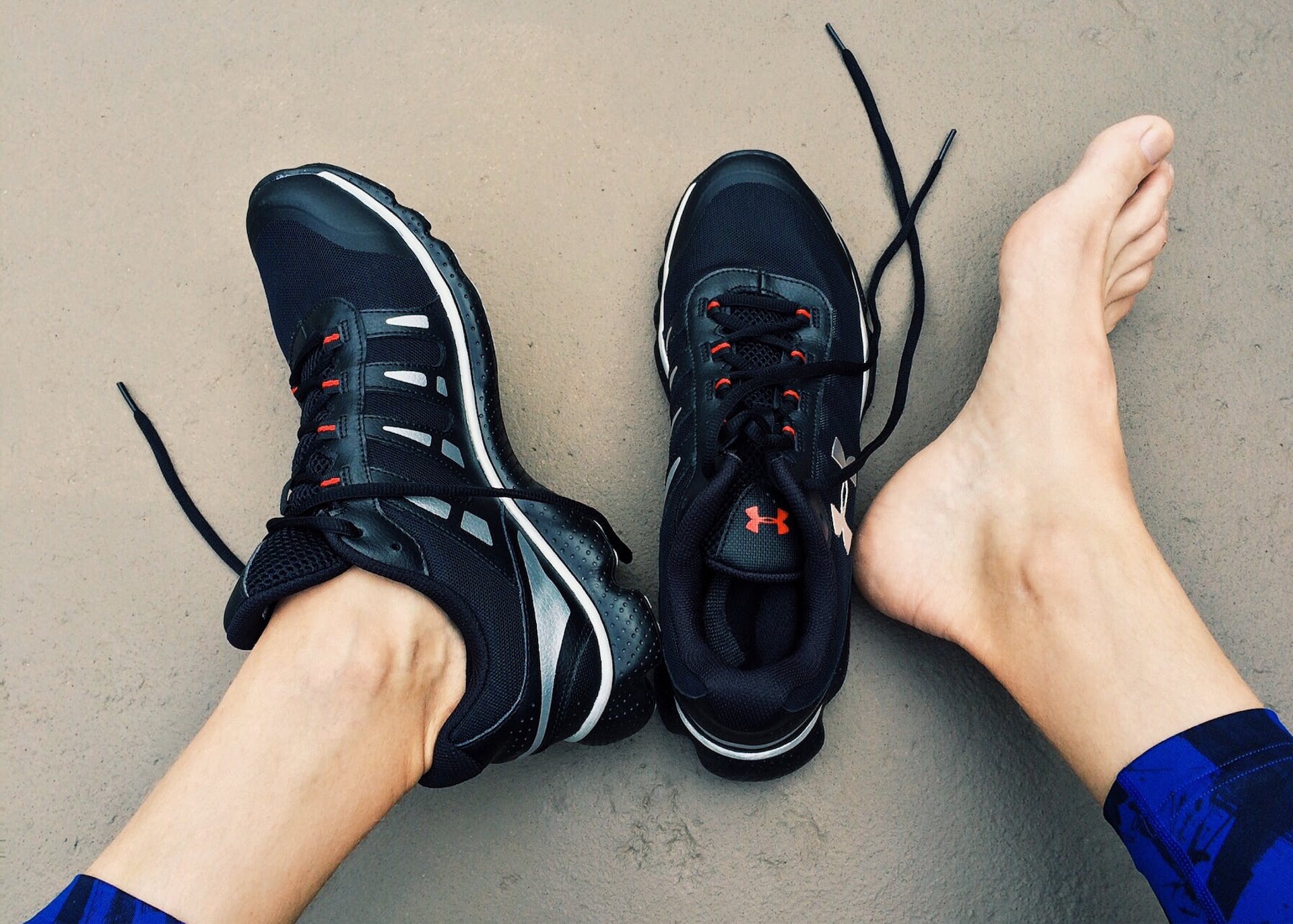How does your cycle impact your performance and should you change the way you train?
Did you know that only 6% of the literature published in leading journals between 2014 and 2020 used female only test subjects? Additionally, a review of 1382 sport and exercise research studies involving over 6 million participants, between 2011 and 2013, found the representation of women to be 39%.
Women make up half of the world’s population and around 26% of the global population are of reproductive age. Those who menstruate (are able to have a period), can have around 480 periods in their life time!
Considering so many of us menstruate, there is very little research in how our cycles impact us. In this blog, I am going to look into the research, to see how the menstrual cycle affects our physical performance and how we should exercise.
What is the menstrual cycle?
The menstrual cycle is a series of changes the body goes through in the preparation for a potential pregnancy. Here is a quick summary of the phases and hormone levels:

The content on this blog focuses on our physical performance during our cycle and understanding the follicular and luteal phase shown in pink and green on the graph, will become increasing important.
- The follicular phase is between the start of your period and ovulation where an egg is released for potential fertilisation. After the shedding of the uterus lining during the period, the lining builds back up just in case a fertilised egg needs to attach.
- The luteal phase starts after ovulation until just before your next period. This is where your body prepares for the possibility of a fertilised egg to attach to the lining of the uterus.
Energy intake & expenditure, cravings and bloating during the menstrual cycle:
Evaluation of multiple studies have shown that 27 out of 37 groups of females had significantly higher energy intake during the luteal phase than the follicular phase. In fact, those with pre-menstrual syndrome/symptoms (PMS) like fluid retention, depression, irritability and lethargy showed increased intake of carbohydrates and calories in the luteal phase than the follicular phase. However, that study showed no statistical difference in calorie intake in those without PMS. Other research, has revealed that in the luteal phase, brain activity is triggered more by visuals of high calorie foods and increased craving for chocolate, sweets and salty flavours.
Additionally, resting metabolic rate (the energy required to keep you functioning), increases in the luteal phase by up to 89-279 kcal more. However, research isn’t unanimous due to large person-to-person variability so we cannot assume that everyone fits this pattern. This inter-person variability is a major limitation to research in this field.
Perception of bloating during the luteal phase rose and came to a peak on day one of menstruation. Body weight was lowest in the middle of the cycle during ovulation then picks up in the luteal phase. This is normal body weight fluctuation and having an understanding that this happens during our cycle provides good perspective of our health and fitness. For example, not knowing that we crave more high energy dense foods, having increased energy intake and that we bloat, can be very disheartening if you have particular physical goals.
Furthermore, due to the large inter-personal variability there is not one diet to follow during your cycle but education of the normal fluctuations outlined above could help in our perception of our physical fitness and health.
How does the menstrual cycle affect performance (including strength, speed, power and endurance)?
One study has asked how do athletes perceive how their periods affects their performance? All groups in a review of literature showed that they believe their performance is affected whether that be strength, speed or power. They particularly mentioned this in the early follicular and late luteal phases so, during and the week before their period. More specifically, the reasons they noted were fatigue, lethargy and menstrual pains.
Research into true athletic performance revealed that 7 out of 24 studies showed actual reduction in performance was not any worse than during other phases of the cycle. They broke performance down into aerobic, anaerobic and strength performance:
- Anaerobic performance (to include sprinting, jumping and powerful movements etc.) was not affected by any phase in 13 out of 16 studies.
- Aerobic performance (endurance activities), was not affected by phase in 70% of studies.
- Muscular strength was not affected by phase in 50% of the studies.
Another review into strength specifically, showed there was no change in strength performance. Once again, it just showed high levels of inter-individual variability. Are you starting to see a pattern emerging here?
Just to confuse things more, there has been some early evidence that perhaps performance might be slightly reduced in the early follicular phase compared to all other menstrual cycle phases and that slight changes in strength or speed may be meaningful for elite athletes. However, these changes are unlikely to be noticed by people who exercise casually for their well-being. Additionally, there may be some evidence that the late follicular phase (the week after your period) and the mid-luteal phase (the week after ovulation) may positively affect your performance due to higher oestrogen levels but unfortunately this research is limited.
Reviews of research has shown that there may be an impact of female hormones on resistance training responses but the conclusion was that due to the complexity of the differences in the menstrual cycle between people, as well as the effect of oral contraceptives, they were unable to draw a high-quality conclusion without conflicting findings.
What is cycle syncing and should we be following it?
Cycle syncing is defined as “optimising your monthly menstrual cycle to fit your lifestyle” by “matching workouts to different phases in the cycle” to improve performance. There has been a sudden boom on social medial suggesting this is the new way to exercise.
Initially this sounds like a brilliant plan in theory, but from what we have learnt in this blog so far, is that every one of us differs and the evidence is just not there. In fact, there are no high-quality studies that directly studies the effect of cycle syncing. Very early research on the timing of resistance training relating to performance (muscle gain and strength) has been carried out and it did show that you can make more muscle strength and muscle building improvements by training in the follicular phase than the luteal phase. However, there were only 7 subjects in the study which is very small in the research world. Additionally, there has been another study that shows there was no difference on these variables when training at difference phases. Therefore, we cannot draw any major conclusions from this.
Moreover, we cannot make generalised advice for everyone due to very small amounts of research in addition to the large person-to-person variability we keep finding in the conclusion of studies.
Psychological response to exercise during the menstrual cycle:
A study showed that the menstrual cycle does have an impact on our enjoyment of exercise and our rate of perceived exertion (how intensely we feel we are working during exercise). The results found that during the luteal phase, subjects enjoyed their workouts less and also found it more difficult.
Similarly to the conclusion of the cycle syncing and diet advice however, we cannot take a generic prescription and apply it to everyone, again due to inter-personal variability.
Conclusion
There is such a research gap in medicine when it comes to women, and considering such a large proportion of the world menstruates, and will continue to, it is unfortunate there is not more of this research. However, during my own research into the studies carried out thus far, many conclusions are stating that more research needs to be done so it looks like we are going in the right direction!
The science shows it is safe to exercise on your period, as well as throughout the rest of your cycle. Considering the variability between each human, my main advice is to listen to your body, take in to account how exercises makes you feel physically and mentally, then if you feel up to it/you enjoy it… go for it!
Here at Spinavita, we help many people get back to activity they enjoy and help them function at their best, including during exercise. Call us on 01452 883232 or email enquiries@spinavita.co.uk to speak to one of our chiropractic team if you would like to discuss how we might be able to help you.
By Jennifer Barr
Reference for the gender gap in research:
https://researchportal.northumbria.ac.uk/en/publications/invisible-sportswomen-the-sex-data-gap-in-sport-and-exercise-scie
https://bjsm.bmj.com/content/51/6/487.short
References on metabolism, calorie intake/expenditure, cravings, diet, bloating and weight:
https://www.ncbi.nlm.nih.gov/pmc/articles/PMC8508274/
https://www.nature.com/articles/s41598-018-32647-0.pdf
https://www.nature.com/articles/0803699
https://pubmed.ncbi.nlm.nih.gov/34648911/
https://www.ncbi.nlm.nih.gov/pmc/articles/PMC7357764/pdf/pone.0236025.pdf
https://www.ncbi.nlm.nih.gov/pmc/articles/PMC6257992/
https://www.sciencedirect.com/science/article/abs/pii/S0006899310021372?via%3Dihub
https://pubmed.ncbi.nlm.nih.gov/27634490/
https://www.ncbi.nlm.nih.gov/pmc/articles/PMC3154522/
https://jissn.biomedcentral.com/articles/10.1186/s12970-015-0072-0
https://www.ncbi.nlm.nih.gov/pmc/articles/PMC5820163/
References on fatigue and performance:
https://www.ncbi.nlm.nih.gov/pmc/articles/PMC7332750/
https://www.ncbi.nlm.nih.gov/pmc/articles/PMC7916245/
https://www.sciencedirect.com/science/article/abs/pii/S144024401930814X
https://springerplus.springeropen.com/counter/pdf/10.1186/2193-1801-3-668.pdf
https://pubmed.ncbi.nlm.nih.gov/26558833/
https://pubmed.ncbi.nlm.nih.gov/26554551/
https://www.frontiersin.org/articles/10.3389/fphys.2020.00517/full
https://sciendo.com/downloadpdf/journals/hukin/68/1/article-p123.pdf
https://link.springer.com/article/10.1007/s40279-019-01219-1
https://link.springer.com/article/10.1007/s40279-020-01319-3
References on mood and psychology:
https://www.sciencedirect.com/science/article/abs/pii/S1550857912001349?via%3Dihub
https://www.ncbi.nlm.nih.gov/pmc/articles/PMC5708589/
https://www.ncbi.nlm.nih.gov/pmc/articles/PMC7929979/
https://www.sciencedirect.com/science/article/pii/S0031938420306041?via%3Dihub
General, helpful information:
https://www.womenshealth.gov/getting-active/physical-activity-menstrual-cycle#:~:text=Does%20my%20menstrual%20cycle%20affect,long%20sports%20events%2C%20like%20marathons
https://helloclue.com/articles/diet-and-exercise/exercise-and-your-menstrual-cycle










